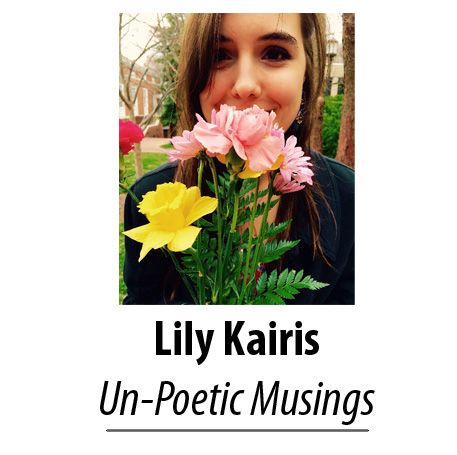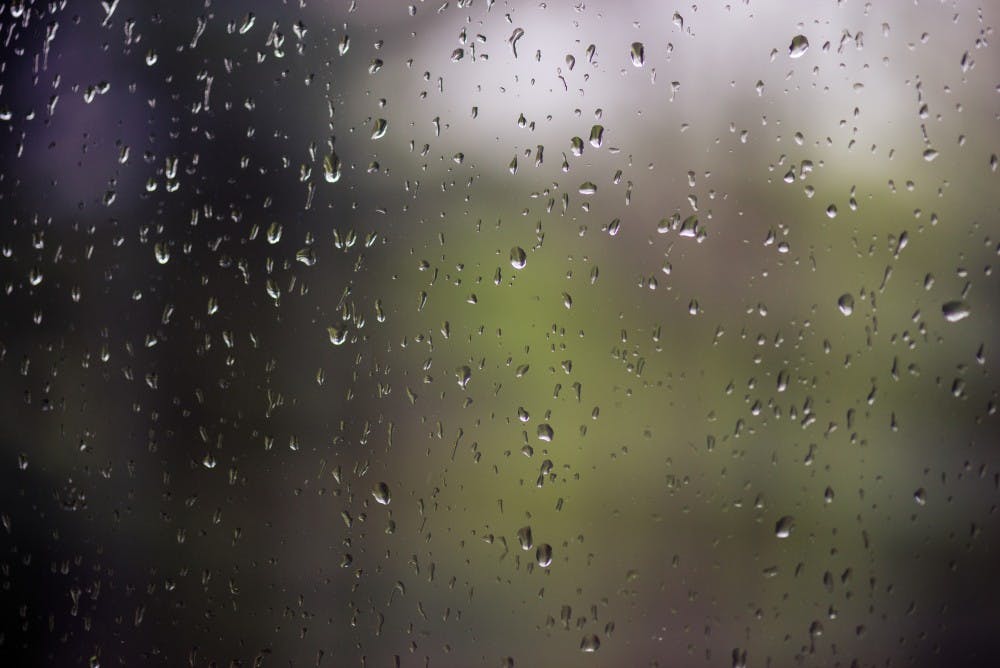
Or when I came home that weekend, to my high school best friends: “Oh, how am I doing? Well, to be honest, I freaked out the other day. Thought I was having a midlife crisis.” Or even, to my parents: “Mom, I’m having a midlife crisis.” After the last one, my mom decided to lay some serious get-your-head-out-of-the-clouds truth on me, á la: “Lily, you’re 19 years old. You’re not having a midlife crisis.”
In the back of my mind, of course, I’d known all along that I wasn’t. I had no intentions of dying at the age of 40, so the literal logic of my “midlife” moment was itself quite faulty. I knew I was over exaggerating. I was fine. I was stable. I wasn’t buying $3,000 motorcycles, I didn’t develop a sudden urge to adopt dozens of stray cats, and I wasn’t, that I knew of, planning any near-death experiences to “teach me how to feel again.” For all intents and purposes, my life was progressing wonderfully, I was incredibly blessed and full of opportunities and yet I still told my friends I was in a “crisis phase.” And why?
Because it was the only explanation I could come up with.
I know it sounds ridiculous and fairly drama-queen-level over the top (in retrospect, it probably wasn’t the best script I could’ve settled with). But at the time, I’d thought the best way to handle my sudden internal chaos and confusion was to give it a goofy name and talk about it with humor as if it were something easy and funny and not-at-all scary.
I guess, for context’s sake, I should explain what exactly I’m talking about. My “midlife crisis,” a week and a half ago, went along the lines of this: One, I questioned my passivity. Two, I questioned my opinions. Three, I questioned whether I actually had any opinions at all. Four, I wondered if I needed to be more upfront about those opinions (Am I letting people walk all over me? Am I not speaking my mind enough? Am I not letting my voice be heard, like Mom, Dad and the Disney Channel, tell me I’m supposed to?). Five, I worried I wasn’t doing anything productive with my life. Six, I worried that I wasn’t on the right track. Seven, I worried, no, scratch that, I panicked, that I would never make any difference at all, that my major was wrong, that my personality was wrong, that I was spending my time all wrongwrongwrong, that I was on the track to nothingness and that I would leave this world without leaving a mark.
Well. Isn’t that morbid?
Reading that back again, I can’t help but cringe at how obnoxious it sounds because clearly, Lily, none of that is going to happen. I was letting my mind run itself into a melancholic black hole of self-pity, and I recognize now, reading those words and keeling over in embarrassment, that I was worrying about things that weren’t going to happen. But it’s a sad, stupid fact — you can’t always control your mind or your panic.
So back then, to be frank, I was panicked. I wasn’t in a good place, and I didn’t like to talk about it because it felt wrong. It felt weak to admit I’d lost that trademark Hopkins you-can-do-it-all spark because if everyone else could reign in their stress and cope with the future and handle the harrowing pressure to perform, why shouldn’t I? It felt weak and ridiculous and selfish to complain. I was a Hopkins student. I was blessed, I was happy. I wasn’t supposed to complain.
And thus, the “midlife crisis” facade was born. It was a joke. It was something to not be taken seriously, something I could hide under when I explained to those around me why I was suddenly so visibly run-down and mopey and why I cried on the phone to my friend back home at 1 a.m.
But here’s the truth — and I’m saying this for my sake, too — it’s okay to have a serious, no-joke, quasi-midlife crisis, even in your college years. It’s really okay.
It’s fine to not know what you want — nobody really does. But it’s also fine to want to change that, to spend hours, even days, thinking about the big questions of your life and figuring out if what you’re doing is what really makes you feel happy and fulfilled. Honestly, real talk: It’s cool to be self-reflective. If you’re that kid in the corner, pondering the values in life most important to you or making a semi-clichéd list of Things You Want to Do Before You Die, dude, I respect you so much. (And a week and a half ago, in much less cool-looking terms, maybe I kind of was you).





